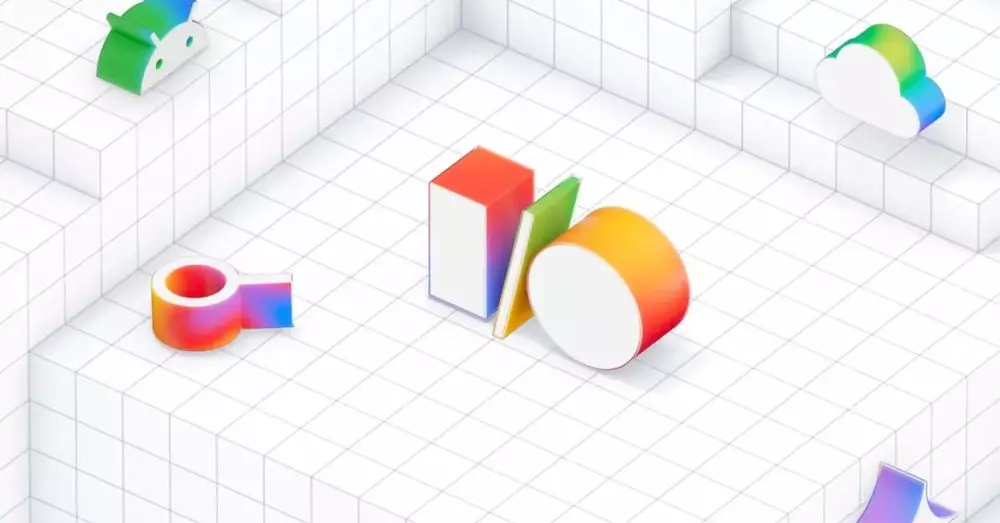As the tech world eagerly awaits Google’s annual I/O developer conference, the focus has shifted markedly toward the realms of Artificial Intelligence (AI) and Extended Reality (XR). Scheduled for May 20th and 21st, 2023, the opening keynote promises an exciting glimpse into the future of technology with a greater emphasis on AI than ever before. Given its strategic positioning amid rivals like OpenAI and Microsoft, Google appears ready to stake its claim as a frontrunner in the AI landscape, potentially setting new standards for innovation and technological evolution.
The Shift Toward AI Dominance
This year, the anticipated keynote diverges from past events, where substantial announcements regarding the Android operating system often led the discussions. Instead, Google has signaled that AI will dominate the narrative, particularly through its advanced Gemini platform. This shift not only underscores Google’s acknowledgment of the competitive pressure in the AI arena but also highlights its commitment to keeping pace with industry giants such as Meta and Microsoft. The excitement surrounding Gemini reflects a broader trend: companies are racing to develop not just functional AI, but intelligent, context-aware systems that will ultimately redefine user interaction across devices.
A Sneak Peek into Project Astra
During the keynote, attendees can expect ambitious updates on Project Astra, which represents Google’s visionary approach to AI integration across various digital services. This project signifies an evolution beyond conventional applications, aiming to provide seamless interoperability between devices while enhancing user experiences. By focusing on such ambitious projects, Google is likely setting a tone that blends aspiration with practicality—essential ingredients for any tech company looking to capture the hearts and minds of developers and consumers alike.
The XR Landscape: Innovations on the Horizon
While AI is the star of the show, the spotlight isn’t completely absent when it comes to Extended Reality. As the tech community speculates about Google’s plans, hints about advancements in XR have surfaced, including a potential unveiling of prototype smart glasses. The mention of Gemini’s integration with Android XR signifies a concerted effort to create an ecosystem that merges AI-driven features with immersive experiences. This burgeoning direction is not only significant for Google, but it indicates a shift in how we perceive augmented and virtual reality in everyday tech usage.
Keeping the Competition on Edge
As the I/O conference unfolds, the timing couldn’t be more intriguing—coinciding just after Microsoft’s Build developer event. This back-to-back showcase sets the stage for a compelling comparison of strategy, vision, and innovation. Google’s reliance on AI could serve as a double-edged sword: while a strong AI focus may set the company apart in the short term, it also risks overshadowing other technological advancements like hardware innovations. Observers are bound to scrutinize how both tech titans play their hands, especially in a marketplace that is increasingly influenced by AI capabilities.
The Changing Face of Device Announcements
Historically, I/O has been a platform for Google to unveil new Pixel devices and Nest products. However, this year appears to feature a much more selective approach. The company seems disinclined to mix hardware announcements with AI updates, a decision likely made to ensure undivided attention to its AI advancements. While the absence of new devices like phones or wearables is noted, there remains the tantalizing possibility of new XR hardware—though initial expectations should remain tempered to avoid disappointment.
The Audience Experience: Accessibility and Engagement
For those eager to participate in this experience, Google has made it accessible through various platforms, including their I/O website and YouTube channel. The commitment to inclusivity is evident, as they offer livestreams with an American Sign Language interpreter. This reflects a growing awareness of the diverse audiences that tune into tech events, reinforcing the idea that technological advancements must be paired with equitable access.
As we prepare for what promises to be a pivotal moment in tech history, Google’s I/O 2023 has the potential to not just showcase innovations but to redefine the landscape in which all tech companies must operate moving forward. The anticipation surrounding the announcements will not only set the stage for Google’s future but also shape the broader narrative of AI and XR in the years to come.

